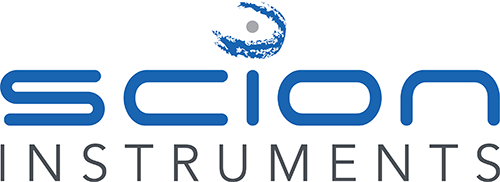Application Solutions
Refinery Gas Analyzers
Measuring gas composition precisely and accurately is a significant challenge in today’s refinery operations. SCION offers RGA solutions to meet the broadest scope of stream sample types and throughput requirements. SCION RGA analyzers not only incorporate proven GC hardware and software but also arrive pre-loaded with analysis methods and include documentation specific to the application required.
Catalysts
Gas chromatography (GC) is becoming an essential analytical tool in the field of catalysts, providing precise and detailed analysis of reaction products crucial for understanding and optimizing catalytic processes. Catalysts accelerate chemical reactions, enhancing efficiency and sustainability, but their performance depends on various factors such as temperature, pressure, and reactant concentrations. Gas chromatography enables real-time monitoring of these variables, offering valuable insights into reaction mechanisms and product distributions. This detailed information aids in fine-tuning catalyst formulations and reaction conditions, ultimately leading to more efficient industrial processes, reduced environmental impact, and lower production costs.
FAME
Gas chromatography (GC) is widely utilized for the analysis of fatty acid methyl esters (FAMEs) due to its high resolution, sensitivity, and capability to separate and identify individual fatty acids within a mixture. The process begins by extracting fatty acids from the sample and converting them into their methyl ester derivatives through esterification. These FAME derivatives are then injected into the GC. Chromatography separates the individual FAME compounds based on their chemical properties, resulting in a detailed profile of the fatty acid composition in the sample. This method allows for precise identification and quantification, making it an essential tool in lipid analysis and quality control.
Cannabis – Profiling and Quantification
The global cannabis market is projected to grow rapidly over the next few years, with medicinal usage becoming more generally accepted, and recreational use likely to rise with emerging changes in legalization. To assure quality, meet regulatory requirements and certify products, careful management of samples and accurate testing and analysis is essential to succeed in this developing and competitive marketplace.
Once the cannabis or cannabis product is produced a suite of further tests are needed to profile and characterize the product. This may be required by regulatory bodies and to demonstrate the quality of the product. With the growing market and increasing number of medicinal formulations, the testing requirements are becoming more stringent and producers need to demonstrate the quality, potency and safety of their product to meet regulatory requirements, achieve certification and differentiate it from those of inferior quality or containing impurities. In addition, testing and analysis plays a critical role in Forensic Toxicology laboratories worldwide.
